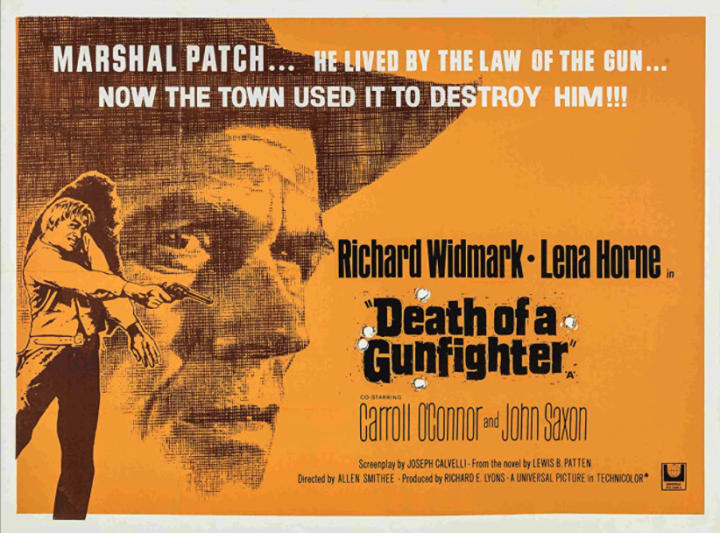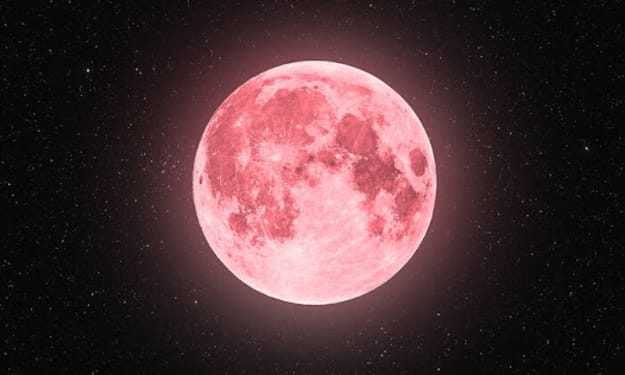The Prolific and Peculiar Career of Alan Smithee
50+ years. 100+ directing credits. But have you ever heard of him?

“Across all feature films made worldwide in the past seventy years (between 1949 and 2018), it’s a rare club of just 134 directors (0.1%) who have directed more than 20 movies.” - Stephen Follows
In the last 70 years, just 134 directors have directed more than 20 movies.
It’s with this mind-boggling tidbit of movie trivia in mind, I’d like to introduce Alan Smithee and his prolific 50+ year career spanning over 100 directing credits according to his IMDb page.
And not only directing. Alan Smithee's impressive resume also includes writing, cinematography, composing, visual effects, and producing. His work spans feature fiction films, TV episodes, documentaries, short films and even music videos.
His initial film Death of a Gunfighter (1969) gained strong reviews from both the New York Times...
"Sharply directed by Allen Smithee who has an adroit facility for scanning faces and extracting sharp background detail"
...and Variety Magazine.
"Smithee's direction keeps the action taut and he draws convincing portrayals from the supporting cast"
However, his later work on the Alfred Hitchcock classic The Birds sequel - The Birds II: Lands End was far less popular. Even Tippi Hedren, who starred in the original as well as featuring in the sequel, spoke out about the poor quality of the film "It's absolutely horrible. It embarrasses me horribly".
But this scathing review has far from deterred him.
Despite ostensibly retiring in 2000, Smithee has still found a myriad of projects to leave his mark on. Most recently directing the 2018 horror flick The Night Watchers and eleven episodes of the TV series Tomorrow Is Ours (2017-2018).
Yet Smithee is far from the household name someone of his prodigious career would expect to be. Steven Spielberg only has 57 directing credits to his name. Tim Burton only has 40 directing credits, Quentin Tarantino just 21. So why haven’t more people heard about Alan Smithee?
Because Alan Smithee isn’t real.
Despite all the movies, TV series, music videos etc that bear his name, Alan Smithee (or Allen Smithee as he is sometimes known) is in fact a pseudonym invoked by multiple people throughout the film industry who wish to disown or separate themselves from a project.
In the case of Birds II, the real director was Rick Rosenthal who currently puts his name down as a consulting producer on Amazon's critically acclaimed transgender drama Transparent. Yet in the Hitchcock reboot he chose to use the Alan Smithee moniker when the control of the script and the changes he wanted to it were taken out of his hands, he said:
“The shape of the film was quite different from what I thought I was going to be shooting."
Many similar situations have led to the Smithee attribution since his creation in 1968 by the Directors Guild of America (DGA). Before this, DGA rules did not permit directors to be credited under false names, fearing directors may be forced to take on pseudonyms by crooked producers, negatively affecting the director’s future earning potential. But after a swarm of applications from unhappy directors to remove their name from works that no longer reflected their creative vision, this rule was amended.
The final straw was the film Death of a Gunfighter. Conflicts between the film’s initial director Robert Totten and the leading actor Richard Widmark led to a new director being brought in halfway through production - Don Seigel. But despite the aforementioned acclaim, the film had with audiences and critics alike, neither director wanted to take credit for the film. The DGA stepped in, accrediting the film to the created name of Alan Smithee instead.

While some claim the name Alan Smithee was created for the anagram ‘the alias men’ in truth the name was chosen for its unremarkable ordinariness.
However, the use of the distinctive double ‘e’ was incorporated in the hope it would never clash with any existing people of the same name.
Over the years, savvy moviegoers started to learn what the pseudonym meant and Alan Smithee became synonymous with box office disaster. And if they hadn’t yet made the connection - the 1997 movie An Alan Smithee Film: Burn, Hollywood, Burn certainly made it quite clear. A fictional comedy about a filmmaker named Alan Smithee, who realises he's made a terrible film but is faced with the reality the only name he can affix to the credits is his own, since the DGA insists Alan Smithee is the only permissible pseudonym directors are allowed to take.
The film's actual director Arthur Hiller, in what is either a great irony or a carefully orchestrated publicity stunt, claimed he was unhappy over the final cutting of the film, and chose to attribute the director's credit of the film to...
...can you guess who?
Yup - Alan Smithee!
So it was no surprise when a mere three years after the film was released, the DGA officially discontinued using the Smithee name. However, Alan Smithee continues to be frequently attributed by directors and many other creatives within the industry.
Disgruntled directors are of course still offered the option to use a pseudonym, but there’s no longer a single name attributed in these cases. For instance:
- Thomas Lee was the accredited director for the 2000 James Spader flick Supernova, which was actually directed by Walter Hill.
- Harry Kirkpatrick was the accredited director for the 2003 movie Shortcut to Happiness which was actually the directorial debut of Alec Baldwin.
- Bob Robertson was used by Sergio Leone for his A Fistful of Dollars, worried American audiences wouldn’t accept a western movie made in Italy.
No matter the reasons behind the use of the Alan Smithee name, the quantity (if not the quality) of his body of work is an intriguing case study of Hollywood history - and at the very least a great little bit of scoop to hang on to for your next round of pop-culture pub trivia.
About the Creator
Jacynta Clayton
As a child I wanted to be a mermaid when I grew up - or a writer. As I got older and discovered seashell bras to be impractical professional daywear, I started focussing on the latter.







Comments
There are no comments for this story
Be the first to respond and start the conversation.